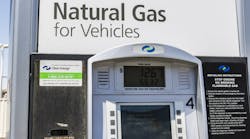It appears as if we are seeing some easing of the backlog of truck orders, and there is some hope that we will be able to move away from allocations soon. This is a good time for fleet managers to begin assessing their truck needs for 2024 and 2025 so they will be ready to place orders once manufacturers open up order boards.
In the next several years, fleets will be faced with a variety of powertrain options in the vehicles they order. Those options include natural gas, hybrids, hydrogen internal combustion, battery-electric, hydrogen fuel cells, renewable natural gas, renewable diesel, and more. Cummins is just one example of an engine maker that is preparing for the future. Its recently announced fuel agnostic engine uses a common base engine but can operate on hydrogen, renewable biogas, and diesel.
Fleet managers can become overwhelmed with all those choices, and it is important to remember that, with the exception of diesel, no one power source can meet the needs of every duty cycle. While battery-electric trucks are well suited for drayage, parcel delivery, short-haul, and return-to-base applications, they are not capable of operating in long-haul applications.
See also: International SuperTruck II hits 16 MPG
Duty cycles matter in fleet planning, especially for fleets that want to begin looking at some of these alternatives to meet government regulations or corporate sustainability goals.
Fleets need to take a measured approach when considering adding alternative fuel vehicles. This is not a time to go all in. Start small with ordering one or two of these alternative fuel vehicles but make sure that you match the duty cycle to the power source. The wrong powertrain decision will be costly even if it is on a few trucks.
Once you take delivery of an alternative fuel truck, monitor its performance in your operation and make sure to do the total cost of operation calculation as you would for any other asset. This will help you decide whether to continue to order trucks with that powertrain.
See also: What EVs mean for fleet shop operations
Planning for the upcoming years is going to be a little more challenging than usual, simply because fleet managers are now faced with so many choices. Begin working with your trusted suppliers and financing partners today so that you make the right decisions for your fleet in the future.
Patrick Gaskins, SVP of Corcentric Fleet Solutions, oversees both sales and operations for the company's fleet offerings. Gaskins joined the company in 2010, bringing more than 30 years of experience as a financial services professional in the transportation industry. He leads a team that works with a supply base of more than 160 manufacturers to help the country's largest fleets manage all aspects of their fleet operations and fleet-related spending.




